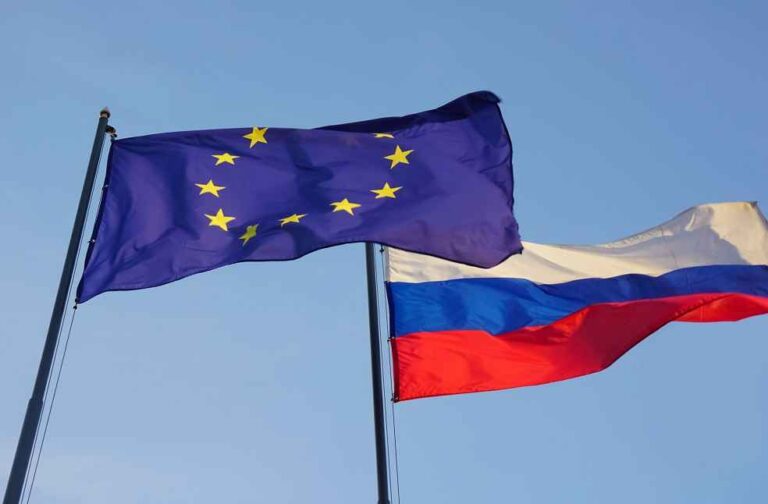Russia’s military prowess amid the ongoing Ukraine war, the European Union (EU) is deliberating on imposing rigorous sanctions that could potentially impact Moscow’s trade to the tune of $5 billion.
Driven by the objective to thwart Russia’s acquisition and production of military arsenal used against Ukraine, these sanctions aim to meticulously obstruct Russia’s access to pivotal components, technologies, and electronics from global conduits.
Since 2014, eleven cycles of sanctions have unfolded from the European Union against the Russian Federation. The latest cycle, unfurled in June 2023, predominantly centered on items with dual functionalities, notable among them are computer chips, while also initiating restrictive measures to curtail ship-to-ship transactions involving sanctioned items. Augmenting these strategic economic constraints, a surge of suspensions materialized, targeting numerous Russian broadcasting licenses across Europe.
The anticipated sanctions delineate comprehensive restrictions covering a variety of domains. A proposed limitation on the import of certain processed metals, software, and aluminum products is under active consideration. Additionally, the realm of these sanctions may extend to encompass building materials, select transportation-related commodities, and a significant focus on diamonds.

The realization of these sanctions as actionable constraints mandates unanimous endorsement from the 27 EU member states. These nuanced proposals await formal presentation and subsequent consensus from the member states.
The Bloomberg report elucidates that preparedness exists within the EU to escalate the breadth of its transit bans and prohibitions, contingent on the participation and action from global counterparts. In the instance of insufficient collaborative global action, an expanded array of products and companies may find themselves under the restrictive umbrella of the EU’s sanctions.
A particular focus resides on the diamond trade, where a formulated embargo is poised to be activated, subject to a comprehensive agreement amongst the Group of Seven (G7) countries. This activation predicates the establishment of a resilient monitoring mechanism for tracking the international trajectory of these valuable stones.

Reflecting the impact of the ongoing strategic considerations, a notable contraction is observed in Russia’s oil export volumes, registering a substantial decline to reach a 17-month low. Influenced by various factors, including transient prohibitions and seasonal operational adjustments at refineries, the daily refined fuel exports have diminished to 2.2 million barrels, reflecting a significant downswing from previous benchmarks.
These contemplated sanctions amplify the EU’s resolute stance to apply formidable financial pressure on Russia, seeking to diminish its military operational capabilities in the enduring Ukraine conflict. This marks a significant development, heralding the inception of the twelfth sanctions package since the onset of hostilities in February of the preceding year.
BUSINESS GENERAL | US Eases Sanctions: A New Dawn for Venezuela’s 2024 Elections



